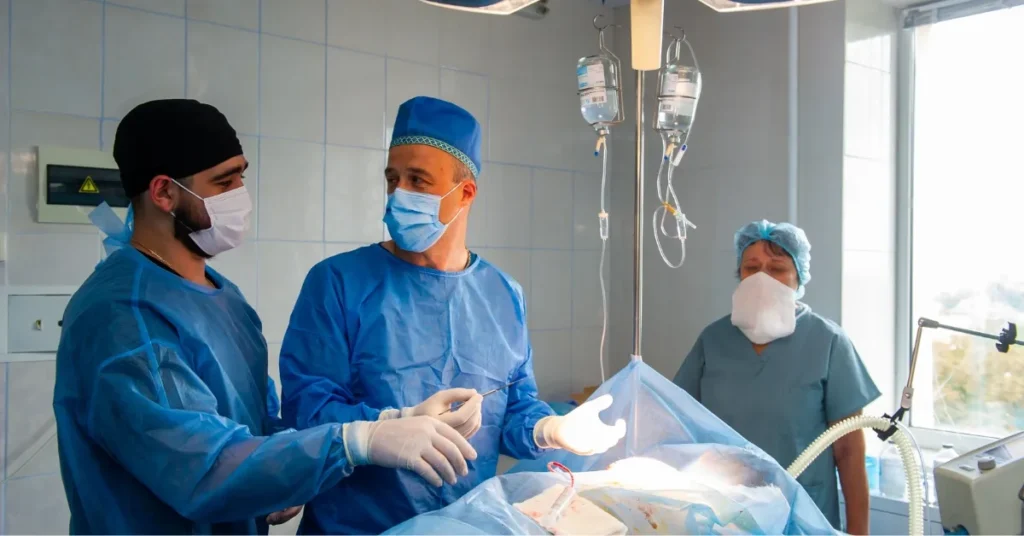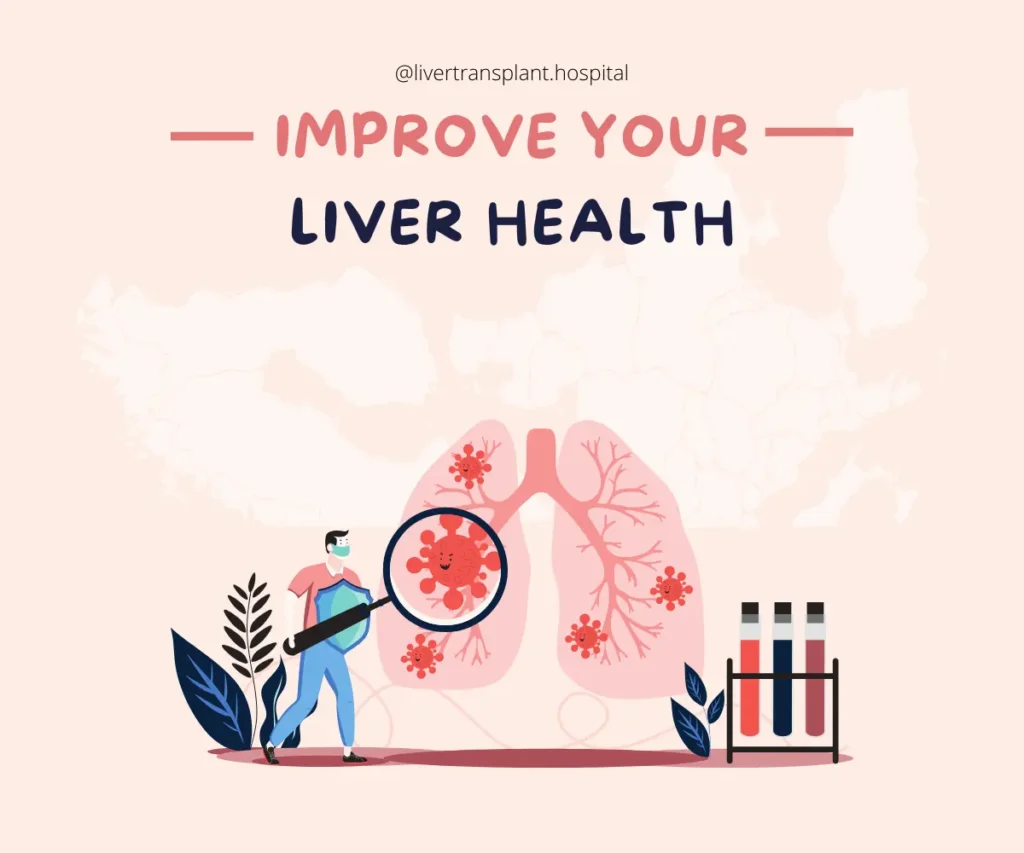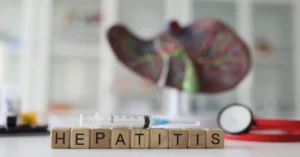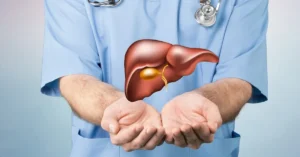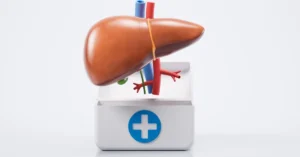Embarking on a liver transplant journey in India is a profound and transformative decision, necessitating thorough preparation for the best results. From the initial evaluation to grasping eligibility criteria, every step is crucial. Exploring essential aspects of pre-transplant preparation offers valuable insights to patients and their families, helping them navigate the complexities of liver transplantation with clarity and confidence. Understanding these key steps is vital for a successful and smooth transplant experience.
Evaluation and Eligibility Criteria
Determining eligibility for a liver transplant is a critical first step in the liver transplant process. This comprehensive evaluation is designed to ensure that candidates are both physically and mentally prepared for the challenges ahead and will benefit most from the procedure. The criteria for liver transplant eligibility include:
- Severity of Liver Disease: Evaluated using the MELD (Model for End-Stage Liver Disease) score, which measures liver function and prioritizes patients based on the urgency of their condition. The MELD score helps in assessing how urgently a patient needs a liver transplant.
- Overall Health: A thorough medical history and physical examination are conducted to determine if the patient is physically fit to endure the rigors of surgery and recovery.
- Coexisting Conditions: Evaluation of other health issues such as heart or lung diseases is essential, as these conditions could complicate the surgery or recovery process.
- Psychological Stability: Mental health is assessed to ensure the patient can handle the stress and demands associated with post-transplant care.
- Social Support System: Ensuring the patient has a strong network of family or friends who can provide support during the recovery phase is crucial for a successful outcome.
- Ability to Follow Post-Transplant Care: The patient’s readiness and capability to adhere to stringent post-transplant medication and lifestyle changes are evaluated to promote long-term success.
Meeting these criteria is vital for proceeding with a liver transplant, as it maximizes the chances of a successful recovery and long-term health.
Medical Assessment and Testing
The medical assessment and testing phase is a crucial step in the liver transplant process in India, ensuring that patients are fully prepared for the surgery and identifying any potential risks. This comprehensive evaluation is vital for optimizing the outcomes of the liver transplant and includes the following key components:
- Blood Tests: These tests assess liver function, blood clotting ability, and detect any infections or underlying conditions that could impact the transplant.
- Imaging Tests: CT scans, MRIs, or ultrasounds are conducted to evaluate the liver’s condition and surrounding structures, providing detailed insights necessary for the surgical team.
- Heart Function Tests: Echocardiograms or stress tests are performed to ensure the patient’s heart is strong enough to handle the demands of the surgery.
- Lung Function Tests: Pulmonary function tests check respiratory health, which is critical for managing anesthesia during the liver transplant.
- Kidney Function Tests: These tests assess how well the kidneys are working, as liver disease can adversely affect kidney function.
- Cancer Screening: Comprehensive cancer screening is conducted to rule out any cancers that could complicate the liver transplant or affect overall prognosis.
These assessments are essential to identify any factors that could impact the success of the liver transplant and ensure that the patient is in the best possible condition for the procedure.
Psychological and Social Evaluation
In the liver transplant process, psychological and social evaluation is crucial for determining a patient’s readiness for the procedure. This comprehensive assessment is essential to ensure that patients are mentally and emotionally prepared for the complex challenges associated with liver transplantation. The evaluation covers several key areas:
- Mental Health Assessment: This evaluates the patient’s psychological stability and ability to manage the stress of both surgery and recovery. A stable mental state is vital for navigating the demanding nature of the transplant process.
- Social Support System: The strength and availability of the patient’s support network, including family and friends, are reviewed. A robust support system is critical for aiding the patient through the recovery period.
- Compliance Potential: This assesses the patient’s likelihood of adhering to post-transplant care and medication regimens. Consistent compliance is necessary to ensure the success of the liver transplant.
- Coping Mechanisms: Identifies the patient’s strategies for managing stress and emotions during the liver transplant process. Effective coping mechanisms can significantly impact recovery and overall outcomes.
- Education and Understanding: Ensures the patient fully comprehends the surgery’s risks, benefits, and required lifestyle changes. Awareness is crucial for making informed decisions and preparing for post-transplant life.
- Readiness for Lifestyle Changes: Evaluates the patient’s willingness to adopt necessary lifestyle modifications for a successful liver transplant. Commitment to these changes is essential for achieving optimal results.
This thorough psychological and social evaluation assists the medical team in providing tailored support, ultimately enhancing the success of liver transplantation in India.
Donor Matching and Selection
The process of donor matching and selection is critical to the success of a liver transplant, particularly in India, where rigorous guidelines are followed to ensure optimal outcomes. Here’s a detailed look at the key steps involved:
- Blood Type Compatibility: The primary step in liver transplant matching involves ensuring that the donor and recipient have compatible blood types. This is crucial for preventing immediate rejection of the liver.
- Tissue Typing: While not as critical as in other organ transplants, tissue typing helps reduce the risk of rejection by matching specific genetic markers between the donor and recipient.
- Crossmatching Tests: Crossmatching is performed by mixing the donor’s and recipient’s blood to check for adverse reactions. This test predicts whether the liver transplant will be successful and helps in selecting the most compatible donor.
- Size Matching: The size of the donor liver must be appropriate for the recipient’s body to ensure proper function post-transplant. This matching ensures that the liver will fit and function well in the recipient’s body.
- Living Donors: A significant number of liver transplants in India involve living donors, often family members who donate a portion of their liver. Living donor transplants offer the advantage of planned surgery and reduced wait times.
- Geographic Proximity: Minimizing the time between liver retrieval and transplantation is essential. Therefore, the location of the donor and recipient is crucial to ensure the liver remains viable and reduces the risk of complications.
This meticulous donor matching process is designed to enhance the chances of a successful liver transplant, providing recipients with a renewed chance at life.
Nutritional and Lifestyle Preparation
Preparing for a liver transplant requires careful attention to nutrition and lifestyle habits to ensure a successful outcome. By following a liver-friendly diet and making healthy lifestyle choices, you can enhance liver function and improve overall health. Here’s a comprehensive guide to preparing for your liver transplant:
- Follow a liver-friendly diet: Consume lean proteins, whole grains, fruits, and vegetables to support liver health. Foods rich in antioxidants and fiber can aid liver function and boost your overall well-being.
- Avoid alcohol: Completely eliminate alcohol from your diet. Alcohol can exacerbate liver damage and complicate the liver transplant process, so avoiding it is crucial.
- Maintain a healthy weight: Achieving and maintaining a healthy weight can significantly reduce surgical risks and support a smoother recovery. Consult with your healthcare provider to set and reach your weight goals.
- Stay active: Engage in light physical activities, such as walking, to maintain fitness and strength before surgery. Regular exercise can enhance your cardiovascular health and help with post-surgery recovery.
- Monitor salt intake: Reduce sodium consumption to manage blood pressure and prevent fluid retention. Keeping sodium levels in check is essential for liver transplant patients to avoid complications.
- Consult with a liver transplant specialist: Work closely with your healthcare provider to tailor these recommendations to your specific needs. Their guidance will be invaluable in optimizing your health and improving the chances of a successful liver transplant and recovery.
By adopting these lifestyle changes, you’re taking proactive steps toward a healthier future post-transplant.
Legal and Ethical Considerations in Liver Transplantation
In the liver transplant process, legal and ethical considerations play a crucial role in ensuring fairness, transparency, and patient safety. Understanding these aspects is vital for both patients and healthcare providers:
- Informed Consent: Both the liver transplant donor and recipient must give informed consent. This means they need to fully understand the risks, benefits, and alternatives associated with the procedure. This transparency ensures that all parties are making well-informed decisions about their health.
- Regulation Compliance: The liver transplant process in India is strictly governed by the Transplantation of Human Organs and Tissues Act. This legal framework ensures that every step of the transplant process complies with established regulations, safeguarding ethical practices and legal adherence.
- Donor Eligibility: Legal guidelines dictate that living liver donors must meet specific criteria. These criteria are designed to prevent exploitation and ensure that ethical standards are upheld, protecting the rights and well-being of both donors and recipients.
- Organ Allocation: Ethical guidelines ensure that liver organs are allocated based on medical urgency rather than financial status. This principle maintains fairness in the liver transplant process, ensuring that all patients have an equitable chance of receiving a transplant based on their clinical needs.
- Confidentiality and Privacy: Patient and donor identities, along with their medical information, are protected under strict privacy laws. This ensures that all personal data is handled confidentially, preserving the privacy and dignity of individuals involved in the liver transplant process.
- Ethical Integrity: Adhering to these legal and ethical standards helps maintain the integrity of the liver transplant process. It ensures that every procedure is conducted fairly and legally, aiming for the best possible outcomes for all parties involved.
These considerations are essential in maintaining the highest standards of care and ethics in liver transplantation, ensuring that the process is conducted with the utmost respect for all participants.
In the liver transplant process, legal and ethical considerations play a crucial role in ensuring fairness, transparency, and patient safety. Understanding these aspects is vital for both patients and healthcare providers:
- Informed Consent: Both the liver transplant donor and recipient must give informed consent. This means they need to fully understand the risks, benefits, and alternatives associated with the procedure. This transparency ensures that all parties are making well-informed decisions about their health.
- Regulation Compliance: The liver transplant process in India is strictly governed by the Transplantation of Human Organs and Tissues Act. This legal framework ensures that every step of the transplant process complies with established regulations, safeguarding ethical practices and legal adherence.
- Donor Eligibility: Legal guidelines dictate that living liver donors must meet specific criteria. These criteria are designed to prevent exploitation and ensure that ethical standards are upheld, protecting the rights and well-being of both donors and recipients.
- Organ Allocation: Ethical guidelines ensure that liver organs are allocated based on medical urgency rather than financial status. This principle maintains fairness in the liver transplant process, ensuring that all patients have an equitable chance of receiving a transplant based on their clinical needs.
- Confidentiality and Privacy: Patient and donor identities, along with their medical information, are protected under strict privacy laws. This ensures that all personal data is handled confidentially, preserving the privacy and dignity of individuals involved in the liver transplant process.
- Ethical Integrity: Adhering to these legal and ethical standards helps maintain the integrity of the liver transplant process. It ensures that every procedure is conducted fairly and legally, aiming for the best possible outcomes for all parties involved.
These considerations are essential in maintaining the highest standards of care and ethics in liver transplantation, ensuring that the process is conducted with the utmost respect for all participants.
Pre-Transplant Education and Counseling
Pre-transplant education and counseling are essential components in preparing patients for liver transplantation. This phase provides patients and their families with crucial information and support to navigate the complexities of the liver transplant process effectively. Here’s an expanded overview of what this entails:
- Understanding the Liver Transplant Process: Patients receive thorough education on the entire liver transplant process, including the initial evaluation, the surgical procedure, and the recovery stages. This comprehensive understanding helps demystify the journey and sets realistic expectations.
- Risks and Benefits: Detailed discussions about the potential risks and benefits of liver transplant surgery are crucial for informed decision-making. Patients learn about possible complications and the anticipated improvements in quality of life post-transplant.
- Post-Transplant Care: Patients are given extensive information on critical post-transplant care, such as medication adherence, monitoring for signs of rejection, and necessary lifestyle changes. This knowledge is vital for ensuring a successful recovery and long-term health.
- Emotional Support: Counseling provides emotional support to both patients and their families, addressing the psychological stress associated with undergoing liver transplant surgery and adjusting to life post-transplant.
- Long-Term Commitment: Patients are prepared for the long-term commitment involved in liver transplantation, including the need for regular follow-ups with their liver transplant specialist and maintaining a healthy lifestyle to support the transplanted liver.
- Family Involvement: Family members are educated and involved in the process, ensuring they understand their role in supporting the patient through the transplant journey and recovery.
This thorough approach ensures that patients are well-prepared both mentally and physically for their liver transplant, leading to better outcomes and a smoother transition to post-transplant life.
Conclusion
A liver transplant is a complex and demanding procedure, but with proper preparation, patients can significantly improve their chances of success. From eligibility evaluation to pre-transplant counseling, each step is designed to ensure the best possible outcome. If you or a loved one is considering a liver transplant, understanding this process is essential. By working closely with your liver transplant specialist and following their guidance, you can navigate the liver transplant process with confidence and hope.

